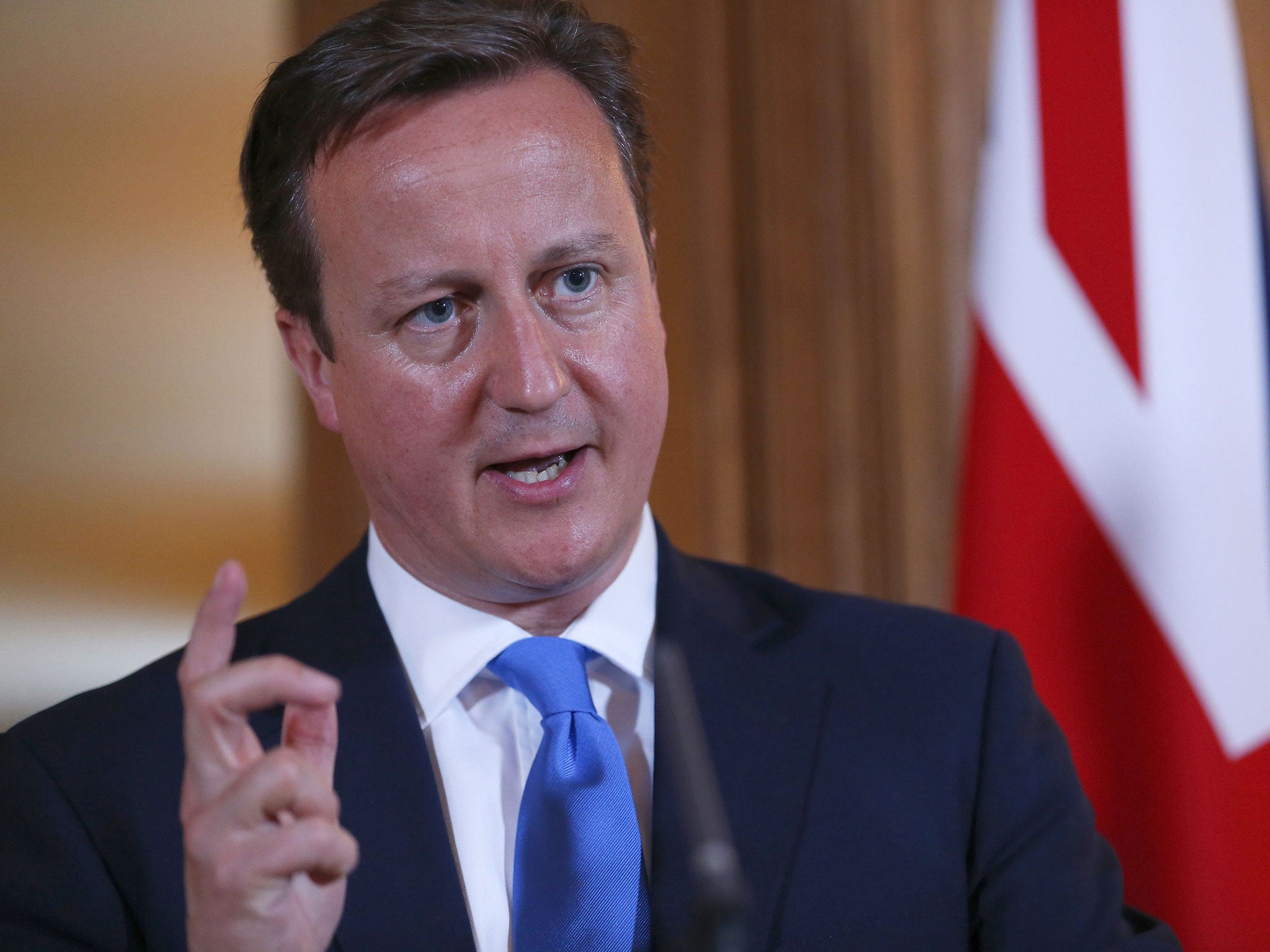Exclusive: David Cameron condemned over ‘ridiculous’ reforms to lobbying
New scrutiny for legislation regarded as a joke within £2bn industry

David Cameron’s flagship law to end Britain’s lobbying scandals is a “useless dog’s breakfast” and the Government should urgently postpone its current fast-tracked progress through Westminster, according to the head of the Commons committee that has scrutinised the reform.
Graham Allen, who leads the Political and Constitutional Reform Select Committee, has taken the unusual step of recalling his committee ahead of MPs’ return to Parliament next month, to hold special evidence sessions involving leading figures from the UK lobbying industry.
“The new lobbying law is rushed and ridiculous,” said Mr Allen. He told The Independent: “Instead of addressing the Prime Minister’s promise to ‘shine the light of transparency’ on lobbying, this flawed legislation will mean we’ll all be back in a year facing another scandal. It is a dog’s breakfast.”
After years of scandal, the lobbying bill intended to address this is scheduled to receive its second reading on 2 September, with Downing Street confident it will then pass through the Lords and become law before the end of the year. It is hoped last-minute evidence from Mr Allen’s committee will force No 10 into a rethink by accepting that the legislation lacks credibility and is regarded as a bad joke inside the UK’s £2bn lobbying industry.
There is also anger among members of the reform committee that Chloe Smith, the Cabinet Officer minister piloting the lobbying law, ignored Commons convention and took over a year to respond to initial findings from MPs. Leading corporate affairs directors claim Ms Smith has barely spoken to anyone in the industry. However, Mr Allen said: “Chloe Smith is a pawn in the firing line. The best way forward is to postpone and re-evaluate what is needed”.
Although the planned law includes a statutory register of lobbyists, only firms which say it is their main business need register. Only firms which meet ministers and senior civil servants need declare whom they represent, and in-house lobbyists are also exempt.
Research published last month by the Association of Professional Political Consultants (APPC) showed ministers in the Department for Business held 988 meetings with lobbyists in 2012. But just two were with consultant lobbyists who would have had to declare the meetings under the new law.
Scandals such as Liam Fox’s 2011 resignation as Defence Secretary, due to his relationship with an unapproved adviser whose business links may have benefited from his ability personally to lobby the minister, have underlined the need for the practice to be regulated. It caused Labour problems too in 2010 when its former Transport Secretary Stephen Byers was suspended from the parliamentary party after saying he was a “cab for hire” who would work for up to £5,000 a day.
Iain Anderson, the director of the lobbying company Cicero, who also chairs the APPC, will appear before the constitutional reform committee later this month. He said: “The Government knows 95 per cent of what lobbyists do will not be covered by this law. They have fixed on the public’s concern over rogue lobbyists. But this law will only undermine public confidence.”
Alexandra Runswick, director of the accountability pressure group, Unlock Democracy, said: “To paraphrase the Prime Minister, this Bill is the next big scandal waiting to happen. We urge the Government to think again and bring forward more comprehensive proposals. There are gaping holes in this law. Business will simply be driven away from respectable lobbying companies into less reputable agencies.”
Tamasin Cave, director of Spinwatch, said: “Firms will have to reveal less than they do voluntarily at the moment.”
Other leading figures from the UK’s top 20 corporate affairs firms privately told The Independent the industry had nothing to gain from flawed legislation. One director said: “Everyone accepts the certain political outcome of this law failing to prevent yet another lobbying scandal – the Government will be forced to come back with something far more draconian.”
Join our commenting forum
Join thought-provoking conversations, follow other Independent readers and see their replies
Comments
Bookmark popover
Removed from bookmarks